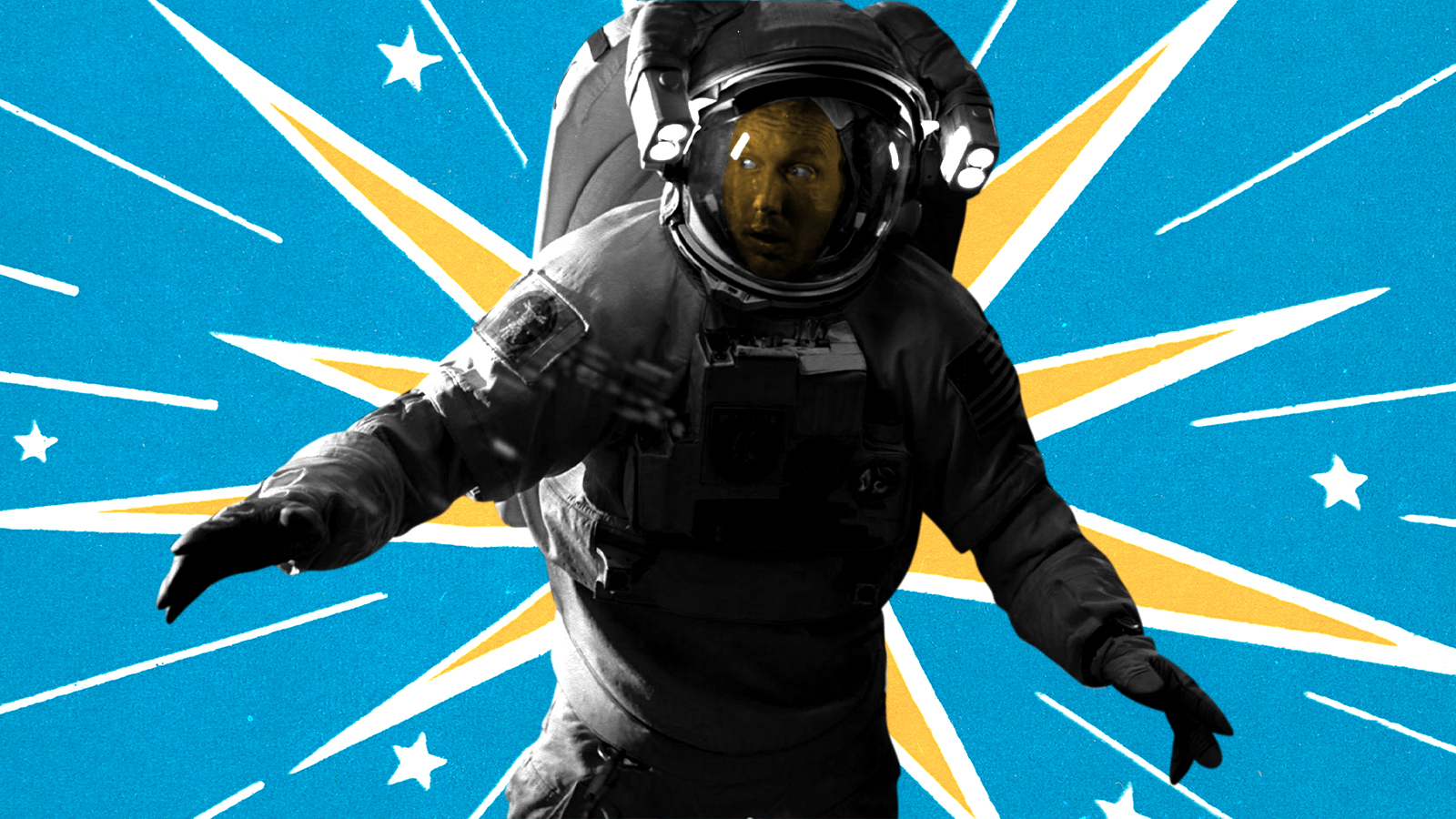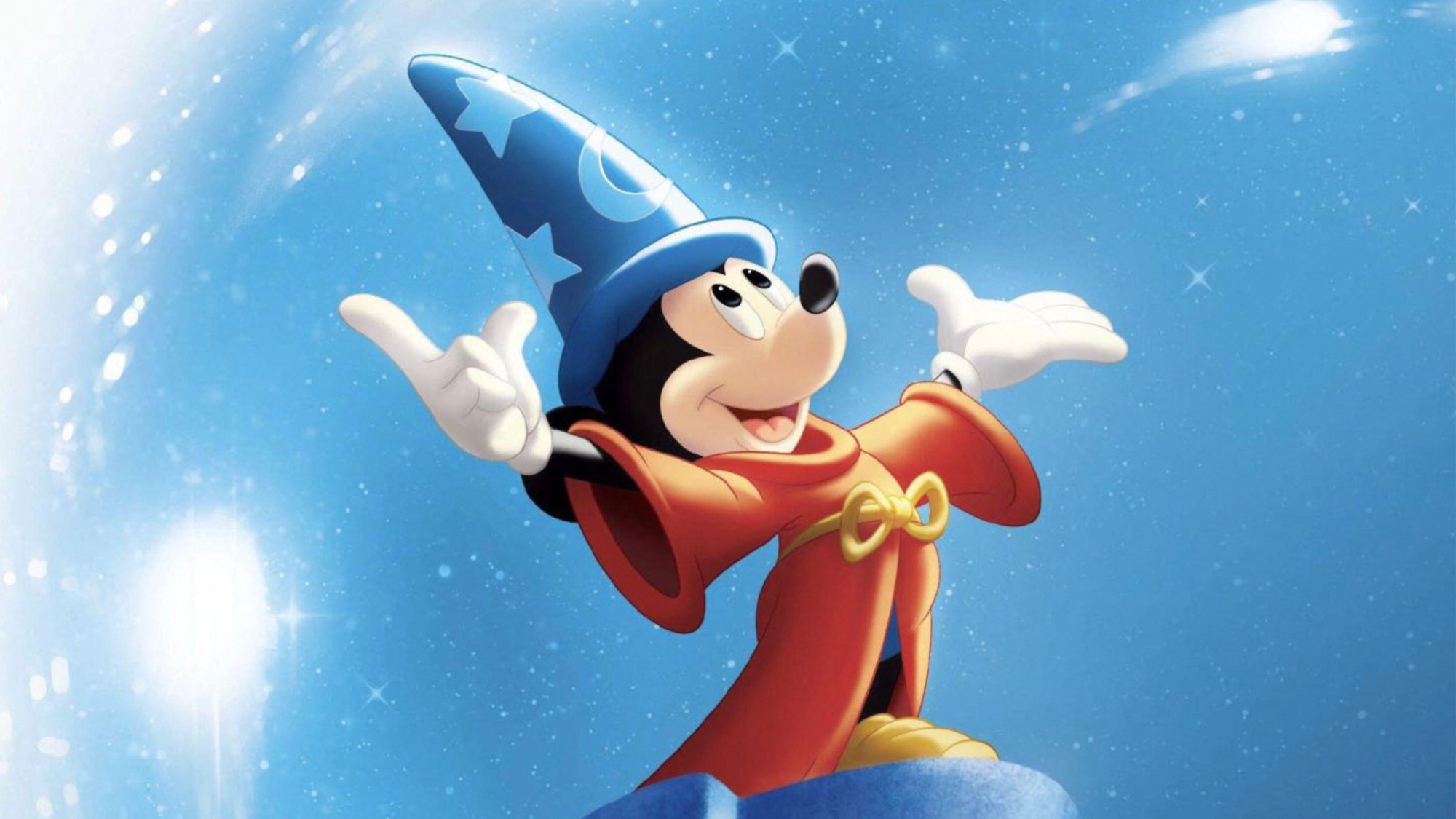Moonfall is a vintage big-ticket disaster movie, for better and worse
They do, in fact, make 'em like they used to


A free daily email with the biggest news stories of the day – and the best features from TheWeek.com
You are now subscribed
Your newsletter sign-up was successful
Any new movie about the end of the world should have a shortcut to chilling relevance. Even allowing that the global COVID-19 pandemic has more closely resembled Steven Soderbergh's Contagion than Roland Emmerich's Independence Day, disparate movies about global disasters often share some common DNA. Cultural fears about a possible apocalypse (or near-apocalypse) loom over brainy and brain-dead thrillers alike.
Yet Moonfall, the latest apocalyptic disaster movie from Emmerich, feels more like popcorn escapism than ever — albeit a batch that may be well past its sell-by date. Maybe it's because the premise comes across as an obvious parody: The moon has slipped out of orbit and now menaces the Earth, and a handful of scrappy astronauts may be all that stands in the way of the planet's oblivion.
It sounds like the hottest summer-movie ticket … of the year 2000. Even its stars, Patrick Wilson and Halle Berry, could have easily done a movie like this two decades earlier. But the Moonfall of 2022 has one big difference from those millennial flicks: It isn't a tentpole at one of the remaining big-five studios. It's a Lionsgate release, financed in part with Chinese money, coming out in the doldrums of February.
The Week
Escape your echo chamber. Get the facts behind the news, plus analysis from multiple perspectives.

Sign up for The Week's Free Newsletters
From our morning news briefing to a weekly Good News Newsletter, get the best of The Week delivered directly to your inbox.
From our morning news briefing to a weekly Good News Newsletter, get the best of The Week delivered directly to your inbox.
Moonfall may well turn out to be a hit in the U.S., but mainlining this particular form of '90s-style spectacle during an ongoing pandemic has its discomfiting moments. The fudged death tolls of these disaster movies, where a handful of "important" characters die as unspecified mass carnage unfolds in the background, has lost its pitiless zip, and a favorite Emmerich character type, the lovable conspiracy-monger whose nutty theories turn out to be correct (played here by John Bradley), now leaves a sour aftertaste. (It was more fun back when filmmakers were simply capitalizing on The X-Files, rather than validating people who are genuinely dangerous to themselves and others.)
Obviously viewers can and should separate movies from real life. Moonfall is emphatically not the latter — but at times, its shlockiness becomes as distracting as its vindication of fringe viewpoints. The comforting corniness of those Independence Day scenes that introduce the obligatory ensemble of disaster-movie archetypes have been shortened, mercifully, and mangled, mercilessly. Detail after detail feels spectacularly off, even by B-movie standards. The disgraced astronaut, played by Wilson, shows up late to lead a seemingly teacherless class of children, held in the middle of a museum. (It looks like a field trip, but they're all sitting at desks?) Wilson's teenage son gets into a high-speed police chase of confusing origin. (Why is it televised?!) A separate comic-relief conspiracy theorist hollers out "Oswald did it!" (Has Emmerich looked up a single popular JFK-assassination conspiracy theory?)
Emmerich seems in a hurry to get to what he thinks of as the good stuff, which has remained fairly consistent over the years. He's still fond of people improbably driving a car through crumbling roadways and across impossible gaps, as his characters did in 2012 and the American Godzilla remake. He seems less interested in leveling national monuments, perhaps because he has run out of them. Instead, Moonfall has something else going for it that helps mitigate its fleeting resemblance to real-life virus-borne and climate-change disasters: the terrible, menacing beauty of the moon visibly bearing down on the horizon.
When Earth's newfound proximity to the moon creates destructive "gravity waves," or when the movie expounds upon the moon's secret status as a "megastructure" rather than a natural satellite, Moonfall does manage to reach a state of blissful stupidity, blessed with a budget for big-canvas sci-fi imagery. To his credit, Emmerich works in a bunch of circa-2000 reference points beyond his own repertoire. Moonfall has moments that recall obvious sci-fi influences like The Matrix as well as his one-time competitors like Michael Bay's Armageddon and half-forgotten curiosities like Brian De Palma's Mission to Mars.
A free daily email with the biggest news stories of the day – and the best features from TheWeek.com
Like a lot of nostalgia bait, it doesn't quite have the sui generis boldness of what it's ripping off (including when what it's ripping off was itself pretty derivative). This is a copy of a copy of an apocalypse — and there were times where I nonetheless felt weirdly grateful to be experiencing it, in all of its dunderheaded glory. Even its most blatantly contemporary touches — like the way it teases a sequel, just as Emmerich's would-be franchise-restarter Independence Day: Resurgence did — have a charm that's at once daft and surprisingly disposable for a $120 million megastructure of its own.
In some ways, Moonfall simply reflects a different sort of landscape decimated by massive quasi-celestial objects: the wannabe special-effects blockbusters that, back in the time of Independence Day, were mostly confined to the prime summer months. In other words, when every (or at least every other) big-studio movie is marketed as a world-ending event, nothing is. No wonder Moonfall feels so disconnected from our real-life brushes with the apocalypse. For better or worse, perpetual summer has turned endemic.
Jesse Hassenger's film and culture criticism has appeared in The Onion's A.V. Club, Brooklyn Magazine, and Men's Journal online, among others. He lives in Brooklyn, where he also writes fiction, edits textbooks, and helps run SportsAlcohol.com, a pop culture blog and podcast.
-
 Is Andrew’s arrest the end for the monarchy?
Is Andrew’s arrest the end for the monarchy?Today's Big Question The King has distanced the Royal Family from his disgraced brother but a ‘fit of revolutionary disgust’ could still wipe them out
-
 Quiz of The Week: 14 – 20 February
Quiz of The Week: 14 – 20 FebruaryQuiz Have you been paying attention to The Week’s news?
-
 The Week Unwrapped: Do the Freemasons have too much sway in the police force?
The Week Unwrapped: Do the Freemasons have too much sway in the police force?Podcast Plus, what does the growing popularity of prediction markets mean for the future? And why are UK film and TV workers struggling?
-
 Microdramas are booming
Microdramas are boomingUnder the radar Scroll to watch a whole movie
-
 Film reviews: ‘Wuthering Heights,’ ‘Good Luck, Have Fun, Don’t Die,’ and ‘Sirat’
Film reviews: ‘Wuthering Heights,’ ‘Good Luck, Have Fun, Don’t Die,’ and ‘Sirat’Feature An inconvenient love torments a would-be couple, a gonzo time traveler seeks to save humanity from AI, and a father’s desperate search goes deeply sideways
-
 The biggest box office flops of the 21st century
The biggest box office flops of the 21st centuryin depth Unnecessary remakes and turgid, expensive CGI-fests highlight this list of these most notorious box-office losers
-
 The 8 best superhero movies of all time
The 8 best superhero movies of all timethe week recommends A genre that now dominates studio filmmaking once struggled to get anyone to take it seriously
-
 Heated Rivalry, Bridgerton and why sex still sells on TV
Heated Rivalry, Bridgerton and why sex still sells on TVTalking Point Gen Z – often stereotyped as prudish and puritanical – are attracted to authenticity
-
 Film reviews: ‘Send Help’ and ‘Private Life’
Film reviews: ‘Send Help’ and ‘Private Life’Feature An office doormat is stranded alone with her awful boss and a frazzled therapist turns amateur murder investigator
-
 February’s new movies include rehab facilities, 1990s Iraq and maybe an apocalypse
February’s new movies include rehab facilities, 1990s Iraq and maybe an apocalypsethe week recommends Time travelers, multiverse hoppers and an Iraqi parable highlight this month’s offerings during the depths of winter
-
 The 8 best animated family movies of all time
The 8 best animated family movies of all timethe week recomends The best kids’ movies can make anything from the apocalypse to alien invasions seem like good, wholesome fun
